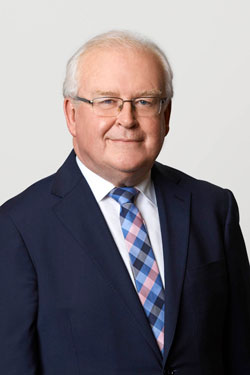|
|
||
|
||
|
Privacy Policy | Editorial Policy | Profit Policy | Join the Association | List of Members | Contact us | Index | Links |
||
|
Back Go to page: 1 2 3 4 5 6 7 8 9 10 11 12 13 14 15 16 17 18 19 20 Forward
|
||
|
|
||
|
Sick Parade. If you know someone who is a bit crook, let us know so we can give them a shout out..
|
||
|
|
||
|
We don’t have any contenders for the Sick Parade this edition – which is good. It looks like everyone is fit and healthy and ready for Christmas.
But we do have this!
Major inquiry says Veterans' Affairs Department should be abolished
The Morrison government has been told Australia’s $13 billion-a-year system for supporting military veterans is broken and should face overhaul, including abolition of the mammoth Department of Veterans' Affairs.
Calling for "bold" reform to avoid further failure, a new report by the Productivity Commission has found the veterans affairs system should operate more like a modern worker's compensation scheme, with Defence taking more responsibility for ex-service men and women's lifetime care, including better preparing them for post-military life. It said Australia’s care of defence force veterans is “not fit for purpose” and should be rebuilt from the ground up. A 700-page report recommends the most significant overhaul of the $13.2 billion-a-year veterans’ compensation and rehabilitation system in a generation, saying the current model often makes the problems of sick and injured soldiers worse, not better.
Commissioner Robert Fitzgerald (right) said there had been a litany of reviews in recent years but none had produced enough change to make the system fit to meet veterans’ needs. "The time for tinkering is over, and bold reform is needed," Mr Fitzgerald said. “It’s not that there hasn’t been progress, it’s just not sufficient to get us where we need to be.
"The commission is absolutely clear that unless there are bold reforms … it will not be a system that is able to meet the needs of future veterans."
The report states that the present system is out-of-date and not working in the interests of veterans and their families, or the Australian community. It is complex, difficult to navigate, inequitable and poorly administered, which "places unwarranted stress on claimants" who are often vulnerable in the first place.
While the existing scheme paid out $13.2 billion last financial year - an average of $47,000 each for Australia's 166,000 veterans and 117,000 dependants being supported - "money alone does not mean it is an effective scheme". The report, which was prompted by a Senate inquiry into veteran suicide, states the system needs to focus more on the well-being of veterans over their lifetimes. That means more focus on prevention, rehabilitation and transition support.
The Department of Veterans’ Affairs would be abolished. Responsibility for veterans’ policy would go to a senior unit within Defence, while a new statutory agency, the Veteran Services Commission, would take charge of administering support.
The agency would process claims, rehabilitate injured and ill veterans, and pay appropriate compensation for pain, suffering and lost income. It would also pay for and find health and community services for veterans. Defence would put money into a fund that would pay for rehabilitation and compensation for veterans. This means they would have a greater incentive to prevent injury and illnesses to serving personnel. This fund would then have to be managed sustainably by the new agency, which would have an incentive to “focus on the lifetime costs of supporting clients”, intervening early and finding cost-effective rehabilitation.
Richard Spencer (right), another commissioner who worked on the report, said the average veteran today was different from one in the past. Military personnel serve an average of eight or nine years and often leave in their mid-to-late 20s. "The rest of their life is ahead of them," he said.
They needed less aged care and pension-style support and more timely rehabilitation and help getting into civilian employment quickly and effectively. Mr Spencer said a particular danger period was the transition to civilian life, especially for younger veterans. "One of the disconnects that’s happening in the transition is that when veterans discharge they immediately shift to [the Department of Veterans Affairs]. They don’t have continuity of care. Programs can stop and restart. That’s when things can go dramatically wrong,” he said.
(Click each pic for the Commissioner’s background)
A joint command within Defence would be responsible for veterans’ welfare for about six months after they leave the military under the Productivity Commission’s proposals.
A couple of things. (In my opinion)
First up, Defence is a nasty business. Its prime purpose is to kill as many people as it can before those people try and kill us and if you want to live in a prosperous and safe country, you’d better hope they are bloody good at it. Defence is not a “normal” 9 – 5 job, it is not there to give a job to the unemployed, it is not there for the benefit of the sexually confused, it is not there for the rabid women’s movement, it is there to stop other countries from trying to march down our main streets. The ADF is geared up with the best aircraft, the best land-based equipment and the best ships available and what we should also be doing is ensuring only our best and most motivated men and women join our Defence Force to face the dangers and protect us where and when necessary.
We ask our Defence Force personnel to face the danger and to put their lives at risk so we can sleep soundly at night. We should be forever grateful for their service and we should look after them and be ever mindful of their welfare.
Over the years the Defence Force has become confused. It seems it now has two roles, one is the historical role of killing other people where and when necessary, the other and more recent, is bowing to the whim of those with a radical and minority view of how our society should work. It seems those with ADF’s reins are more worried about what these people think of Defence’s “new-age” role than of its intended purpose.
Defence should be left to do what it does best – to defend. We know at times the job can be excruciatingly difficult and dangerous - but that is the job. Surely people know this when they join the ADF. Combat can and does leave people with both physical and mental scars which can require many months, sometimes years, to heal. But is it Defence’s job to be the healer? It can’t be both, it can’t deliberately put its people in harm’s way one minute then be all sorry and tearful when someone gets hurt. In times of turmoil, it goes without saying that our Defence Force will always try and mitigate casualties but casualties are a sure and certain by-product associated with the job – it’s unavoidable. It's a dangerous and sometimes very scary job. Defence will spare neither money nor time in patching up its injured, it always has done but should it be involved in tending to an ex-Member years after that member has left.
I don’t think so, surely that’s not Defence’s job.
In 1917, the Australian Government established the Repatriation Department and tasked it to look after its ex-Servicemen and women who were suffering as a result of their service. In 1974, the Repatriation Department changed its name to the Department of Repatriation and Compensation and in 1976 it changed again to the Department of Veterans Affairs. Since 1917, that Department has provided a wonderful service to all Ex-Servicemen and women, at the envy of ex-Service-people from most other countries.
They do a brilliant job and they should be allowed to get on with it and do what they, and only they, do best. They work on the principal, if you deserve it, you'll get it! If there are any criticisms about their performance, those grievances should be directed to the Government which sets the guidelines under which the DVA can work.
We read with interest where the Productivity Commission has suggested the DVA should be wound up and their tasks given to Defence.
Are they serious??
Defence has enough to do trying to keep one step ahead of potential troublesome neighbours without having the role of healer tossed in. The Defence role requires aggressive and militant thinking from its leaders, it would not and could not take on the DVA role.
We wonder from where the Productivity Commission got the brainstorm to dismantle the DVA. If you have a look at each Commissioner’s background (HERE) most are eminent and responsible people. Most have financial or legal backgrounds – but none have a military background, they have never experienced the horrors of combat, they do not understand the turmoil experienced by most ex-militants. Perhaps they were influenced by their backgrounds, perhaps were they thinking solely of cutting costs, that seems to very close to the truth as it’s apparent compassion never entered their thinking.
I hope the report goes into the wheelie bin where it deserves to be.
tb.
|
||
|
|
||
|
|
||
|
|



